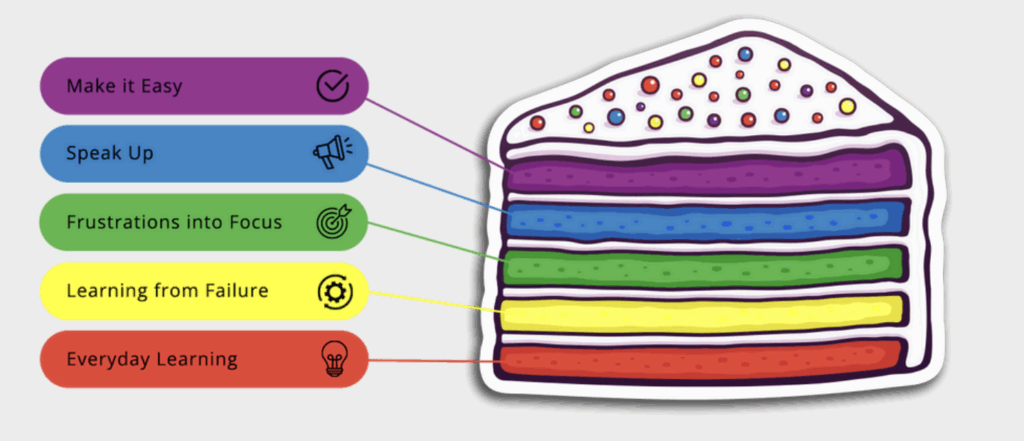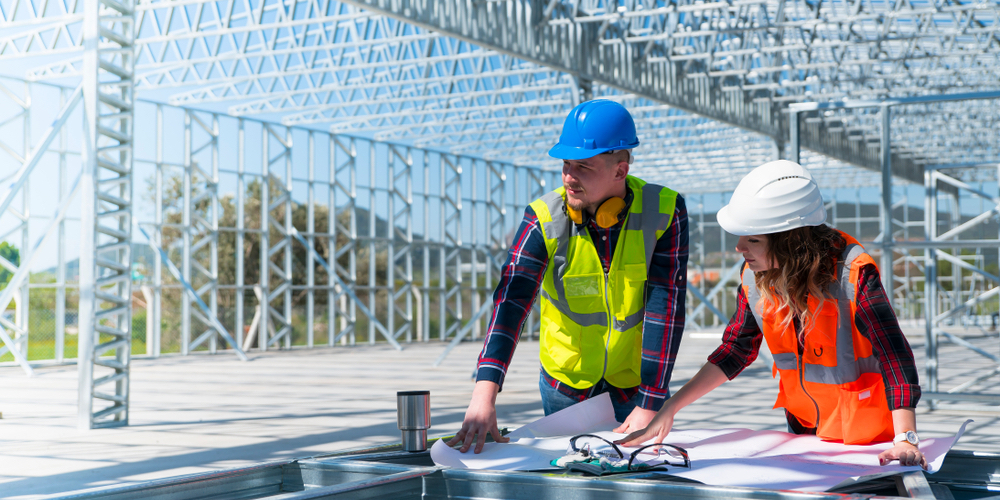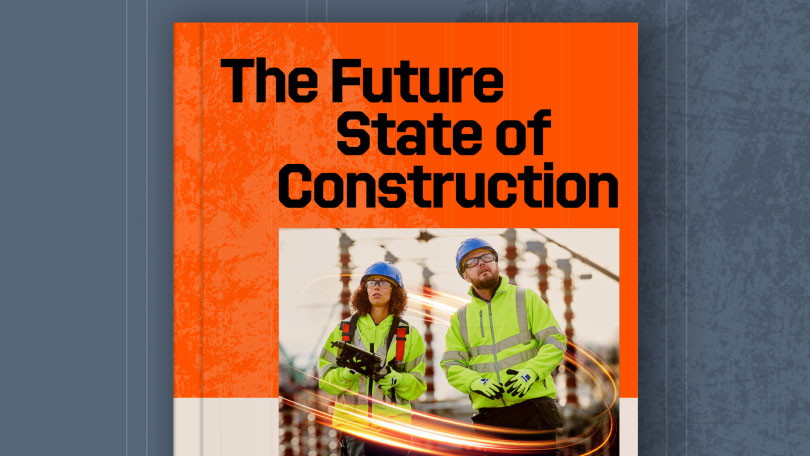— 7 min read
Better People, Better Projects: The Culture Cake Approach to High Performance in Construction

Last Updated Sep 26, 2025

Becky Ray
Founder
With over 25 years of experience in High-Risk industries - including Rail, Construction, Manufacturing, and Military Aviation - Becky Ray has honed her expertise in creating and sustaining high-performing workplace cultures. Her unique and dynamic career has seen her as a Forklift Truck Engineer then a Health and Safety Leader, and now a Culture Change and Leadership expert. Becky has consistently demonstrated her commitment to fostering environments where individuals and businesses can thrive. As the CEO of Culture Kick, Becky is a passionate advocate for values-driven leadership. She partners with organisations that aspire to elevate their workplace culture, empowering leaders to unlock the full potential of their teams. Her innovative Culture Kick Culture Cake—a unique, five-layered framework—brings the journey of cultural transformation to life in a way that’s as practical as it is engaging and allows people to take small steps towards High Performance by choosing to Be Better. Why Culture Matters For Becky, culture isn’t just about perks like coffee machines or annual parties. It’s about establishing a foundation where people are set up for success. A high-performing culture means: Actively making it easy for people to get work done. Creating a speak up culture where people can share ideas and concerns. Turning frustrations into focus to remove, reduce or reframe them. Embracing the chance to really learn from failure Amplifying opportunities to learn from normal every day and successful work.

Nicholas Dunbar
Content Manager
65 articles
Nick Dunbar oversees the creation and management of UK and Ireland educational content at Procore. Previously, he worked as a sustainability writer at the Building Research Establishment and served as a sustainability consultant within the built environment sector. Nick holds degrees in industrial sustainability and environmental sciences and lives in Camden, London.
Last Updated Sep 26, 2025

Culture in a construction workplace sounds like an abstract idea. You can’t see culture, but you can feel it as soon as you step on site. It’s common for construction workers, whether they’re in the office or on site, to be concerned primarily with the technical and commercial aspects of construction, because these have a more obvious impact on delivery. However, culture has just as much significance and can make or break efficiency, quality and safety.
Although there has been a positive shift towards valuing and fostering a positive culture in construction workplaces, especially over the last 10–15 years, there is still room for improvement in many companies. Resistance towards cultural change is understandable. Many construction professionals have been working in their roles for over 30 years and started long before culture became a commonplace idea in the industry. Changing mindsets is half the work here.
It might sound a bit weird, but I love it when I see people roll their eyes at a cultural workshop, because it shows they’re more engaged than they think they are. They’re one step ahead of the person at the back of the room with their arms folded, not saying anything.

Becky Ray
Founder
Culture Kick Ltd
Just as we can no longer imagine or tolerate the idea of scaffolders working at height without harnesses or safety measures, we should no longer tolerate a hostile or negative culture in construction workplaces. But it takes time and proof to show the value of culture, as well as an understanding of why qualities such as empathy, compassion and vulnerability have their places on site.
Table of contents
How to Spot a Poor Workplace Culture in Construction
A struggling culture in a construction team isn’t always characterised by messy, disorganised sites and
heated arguments between colleagues. While these are obvious signs that the culture isn’t optimal,
there are more subtle markers that indicate the need for culture to change.
The main sign is found in workers’ communication and sentiment. The biggest indicator that your
culture’s not right is if people are grumbling en masse, rather than just one or two people. You can have
the best equipment, the best IT systems and the best people, but workers expressing a lot of frustration
becomes contagious. It affects everybody’s morale and, ultimately, the quality of work and
collaboration.
Go and spend a couple of hours on site and just silently observe. If you hear those grumbles and moans from a good chunk of people, and if they don’t care who is listening, then you know the culture really needs improvement.

Becky Ray
Founder
Culture Kick Ltd
The Culture Cake Framework: 5 Layers to Create a Healthy Company Culture in Construction
A great first step is when you identify that the culture on site needs help. But the next challenge is deciding what to do about it. This is where frameworks like the Culture Cake can help. The Culture Cake framework is a valuable tool for understanding the layers that build up a positive, constructive culture in the workplace. These five layers, as demonstrated in the diagram below, come together to create a culture that helps everyone succeed, work together and have a better experience at work — all of which lead to better project outcomes.

What These Five Layers Mean
Make it Easy:
Whatever you’re asking people to do, and whatever your project is trying to achieve, you need to make it as easy as possible for people to show up and do what they do best.
Speak Up:
This is about creating psychological safety. If someone listening to a briefing thinks, “I don’t
know what that means,” it’s important that they feel they can ask questions. This is especially important
in construction, where a lack of understanding can create safety risks.Frustrations into Focus:
If people are frustrated at work, they can’t and won’t do their best. This layer is about uncovering the things that are frustrating people and distracting them from doing their best work — so you can put a focus on those barriers and break them down.
Learning from Failure:
No business wants to fail, but some failure is inevitable. We need to start seeing failure as an opportunity to learn, do things differently and enable continuous improvement.
Everyday Learning:
If a team has done a whole week’s work where nothing has failed, that’s fantastic. Still, it’s likely there were areas where things nearly went wrong, but course corrections prevented failure. These corrections also provide valuable lessons to learn.
The Missing Link: How Middle Management Can Make Their Mark on Culture in Construction
It can be tempting to assign the responsibility of culture to either the senior leadership who set the tone for a company or the tradespeople and subcontractors who make up the biggest group of workers. But there’s a zone in the middle that could play a much bigger part. Middle managers, such as supervisors and team leaders, are often underinvested in culture despite their unique position, with direct connections to both senior leadership and tradespeople.
Middle managers have the biggest influence over the culture because of that direct link to the leaders who have the strategic direction of the project, site or business, as well as being out there on the ground with the people who are physically doing the work.

Becky Ray
Founder
Culture Kick Ltd
Senior leaders, people with “director” or “head of” in their titles, are the ones who are going to management courses and picking up insights about culture. But they’re not the ones who have the most influence over the culture on site. You can create ripples of change in the workforce by developing and investing in the middle management layer, sending them to courses or bringing in consultants to coach them about improving culture. That’s because they have much more direct interactions with all of the different teams.
One Daily Habit for Building a Better Culture
People working on site — especially subcontractors — are often looking down and in, focusing on their own tasks. Everything changes when people take a step back and look at the bigger picture: how all the elements, teams and tasks fit together to drive positive project outcomes. There’s a simple, single habit that can draw people out of their comfort zone of focusing on their own tasks: be curious and ask questions.
Asking questions is the best way to understand the broader status and goals of a project. And it helps to build collaboration across teams. The main contractor can encourage this kind of cross communication by setting an example and giving people the space to do just that. Of course, there are the morning briefings where these teams are in the room together and everyone can ask questions. But for better collaboration, we want these conversations to extend outside of the meeting room and onto the site, so that they happen during daily tasks.
Asking questions is also a huge part of cultivating a healthy and productive relationship with failure. It’s important to be curious and nonjudgmental when things don’t work, rather than reacting negatively and playing the ‘blame game’. This helps construction companies to pivot from simply identifying lessons to actually learning from them and implementing changes.
I want people to understand that some failure is inevitable, and we need to grab hold of it and ask, “What is this failure going to teach us that we didn’t know before?"

Becky Ray
Founder
Culture Kick Ltd
A Simple Exercise to Try On Site
If you’re excited by the prospect of uplifting the culture on site but still aren’t sure which area to tackle first — or which layer of the Culture Cake to focus on — you might benefit from an initiative like Feedback Fridays. Feedback Fridays is all about giving positive feedback that boosts morale and gets people into the habit of talking to and valuing one another.
On a Friday, everybody picks one person, and they either go and see them in person, or they do it by email or phone, and they say, “When you did this for me, it made me feel like this, and it really helped the business in this way.” So talk about a specific thing that they did that really helped you or the project, or the business, and be really overenthusiastic about it. So then when you leave on a Friday, hopefully you’re having the weekend off — guess what? — you feel great.

Becky Ray
Founder
Culture Kick Ltd
Wherever you are on your culture journey, the habits discussed in this article — being curious and asking questions, empowering middle management and practicing giving regular positive feedback — will make a real difference in how people feel and perform at work. Ultimately, culture is what determines whether people have a good experience or a bad one in the workplace. To ensure that construction teams work well, and that workers stay satisfied in their jobs, construction companies need to keep culture on the agenda.
Categories:
Written by

Becky Ray
Founder | Culture Kick Ltd
With over 25 years of experience in High-Risk industries - including Rail, Construction, Manufacturing, and Military Aviation - Becky Ray has honed her expertise in creating and sustaining high-performing workplace cultures. Her unique and dynamic career has seen her as a Forklift Truck Engineer then a Health and Safety Leader, and now a Culture Change and Leadership expert. Becky has consistently demonstrated her commitment to fostering environments where individuals and businesses can thrive. As the CEO of Culture Kick, Becky is a passionate advocate for values-driven leadership. She partners with organisations that aspire to elevate their workplace culture, empowering leaders to unlock the full potential of their teams. Her innovative Culture Kick Culture Cake—a unique, five-layered framework—brings the journey of cultural transformation to life in a way that’s as practical as it is engaging and allows people to take small steps towards High Performance by choosing to Be Better. Why Culture Matters For Becky, culture isn’t just about perks like coffee machines or annual parties. It’s about establishing a foundation where people are set up for success. A high-performing culture means: Actively making it easy for people to get work done. Creating a speak up culture where people can share ideas and concerns. Turning frustrations into focus to remove, reduce or reframe them. Embracing the chance to really learn from failure Amplifying opportunities to learn from normal every day and successful work.
View profileReviewed by

Nicholas Dunbar
Content Manager | Procore
65 articles
Nick Dunbar oversees the creation and management of UK and Ireland educational content at Procore. Previously, he worked as a sustainability writer at the Building Research Establishment and served as a sustainability consultant within the built environment sector. Nick holds degrees in industrial sustainability and environmental sciences and lives in Camden, London.
View profileExplore more helpful resources

Construction Quality Control: Avoiding Costly Mistakes
Every construction project begins with a client’s vision, which the design team translates into drawings and specifications. Contractors, subcontractors, and suppliers then provide the materials, equipment, and labour to bring...

Invitation to Tender (ITT) in Construction
An invitation to tender (ITT) is an official document a client issues to encourage contractors to submit tenders for a construction project. The ITT provides all tenderers with information about...

Liquidated & Ascertained Damages (LADs) in UK Construction
Staying on programme is one of construction’s greatest challenges. Contractors must juggle multiple clients’ deadlines, labour, and plant – and when delays occur, the consequences extend well beyond inconvenience. Contracts...

Constructability: Reviewing Designs to Mitigate Construction Risks
From the Guggenheim Museum in Bilbao to 8 Spruce Street in Manhattan, Frank Gehry’s buildings are known for being distinctive and expensive – yet delivered on time and within budget. ...
